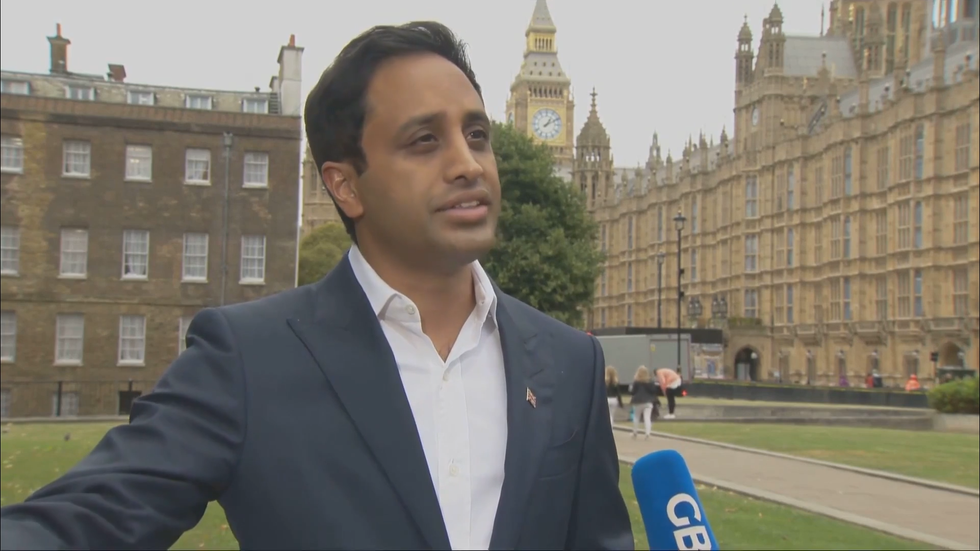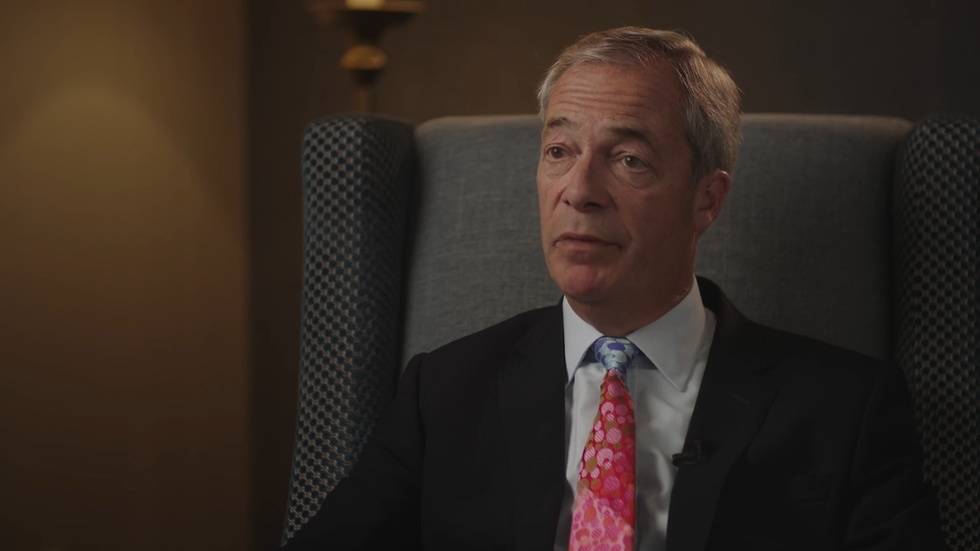The constitution has marked a significant change in how Reform UK runs its affairs
PA
A copy of the constitution has been seen by GB News
Don't Miss
Most Read
Trending on GB News
Reform UK's new constitution has highlighted six key areas the party has committed to embrace in its policies.
The party's new rulebook, which has been drawn up by Reform's chairman Zia Yusuf, is to be presented at the party's conference this weekend.
Among its list of commitments were promises to "espouse policies" which lower the burden of taxes on individuals and businesses, ensure stronger border control and strengthen the rule of law.
The constitution has marked a significant change in how Reform UK, which is currently a limited company majority-controlled by Farage, runs its affairs after a strong performance in the election.
 The party's new constitution has been drawn up by the party's chairman Zia YusufGB News
The party's new constitution has been drawn up by the party's chairman Zia YusufGB NewsThe first objective of the party was to embrace policies that "promote and encourage those who aspire to improve their personal situation and those who seek to be self-reliant, whilst providing protection for those genuinely in need."
The Reform Party already pledged to lift the Income Tax start point to £20,000 p.a. in its "contract" with the people, which would be a "key incentive" for those on benefits to find work.
The constitution also pledged to "favour the ability of individuals to make decisions in respect of themselves" and to "lower the burden of taxation on individuals and businesses."
Reform UK also previously said they would lift the minimum profit threshold to 100k, reduce the main Corporation Tax Rate from 25 per cent to 20 per cent and then to 15 per cent in Year 3 to lower the burden of taxes on businesses.
Another policy area Farage's party plans to commit to is to "ensure the proper control over the United Kingdom's borders."
Uncontrolled immigration was at the forefront of Reform's campaign in the run-up to the general election with the party arguing that the "only way" to relieve pressure on housing, and public services and to increase wages was to freeze non-essential immigration.
The party also pledged to deport foreign nationals immediately after their prison sentence ended and to bar student dependents.
The final two points the party intends to endorse are to "promote and strengthen the rule of law" and to "strengthen and guarantee the essential, traditional freedoms and liberties of all people in the United Kingdom."
Earlier this month, Farage accused Keir Starmer of presiding over a "two-tier" policing and prisons system as prisoners were released early in a bid to ease overcrowding in September.
The Reform leader is among those who claimed police and the prime minister were dealing with rioters more harshly than others, known as two-tier policing.
 Nigel Farage could be forced out by half of his members under changes to Reform UK’s new constitutionGB News
Nigel Farage could be forced out by half of his members under changes to Reform UK’s new constitutionGB NewsLATEST FROM MEMBERSHIP:
- Nigel Farage's 'security situation changed significantly' after riots slurs
- Three big state pension issues which the Government really needs to address
- Get FIVE free entries to the Great British Giveaway when you become a GBN member in September
The constitution also delivers on a pledge by Farage in an interview with GB News the day before the general election in July that he would seek to democratise his party.
Farage could be forced out of his position if more than half of Reform UK members lose confidence in his leadership.
Under the new changes to be voted on at this weekend's Reform UK conference, a vote of confidence will be considered by the party's board if either half of its MPs or its members write to the chairman demanding one.
In an email to Reform UK members, Yusuf said that Farage had now proposed "to sign away his majority shareholding in the party, as the party structure changes to become one limited by guarantee, not by shares.
"This means the party will have no shareholders - it will be owned by members. It will be a not-for-profit model, governed by the constitution."







